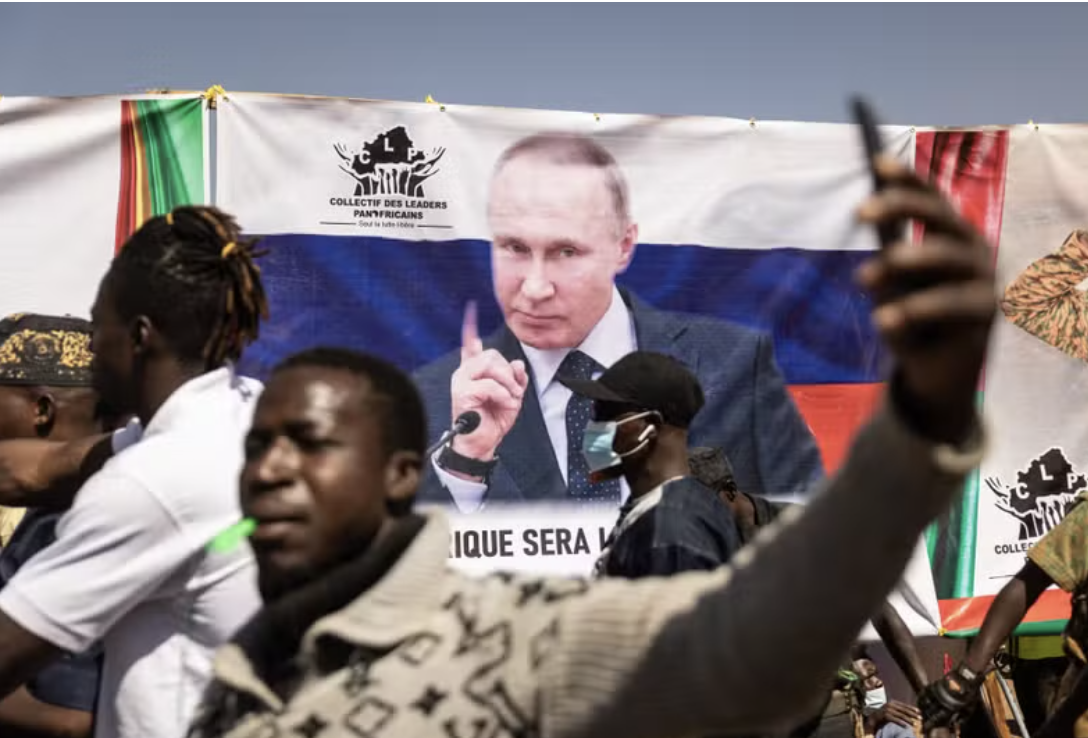After Wagner’s Exit: Is Russia Reshaping Its Military Presence in Mali?

Russia wants to share control with the Malian army.
Amid its escalating conflict with the West over the war in Ukraine, Russia is working to strengthen its military ties across Africa—this time by restructuring its presence in Mali, a key state in West Africa.
In what observers see as a strategic move, Russia’s Wagner Group announced on June 8, 2025, that it was withdrawing from Mali, ending more than three years of support operations alongside the Malian army in its fight against various armed groups.

Wagner Leaves Mali
The Wagner Group announced its withdrawal from Mali in a statement posted on Telegram, declaring, “The mission is complete,” and confirming that its forces are “returning home.” The group claimed it had helped local patriots build a strong and disciplined army capable of defending their land, adding that all regional capitals were now under the control of the legitimate authorities.
Mali, alongside neighboring Burkina Faso and Niger has battled an insurgency by armed groups—including affiliates of al-Qaeda and ISIS—for over a decade. It also faces periodic clashes with the Permanent Strategic Framework for the Defense of the People of the Azawad, a Tuareg-led military coalition advocating autonomy for northern Mali, home to many Tuareg tribes who have long accused the Malian government of marginalization.
Following coups in 2020 and 2021, Mali’s military—now led by Colonel Assimi Goita—severed ties with its former colonial ruler France and turned toward Russia. Wagner's involvement grew as anti-French sentiment surged and French troops fully withdrew in August 2022, ending a nine-year mission under Operation Barkhane.
With Wagner's exit after more than three years in Mali, its local units have reportedly been absorbed by Russia’s newly formed Africa Corps, according to diplomatic and security sources on June 9, 2025.
The Africa Corps was launched in December 2023 to replace Wagner in countries like Libya, Burkina Faso, Mali, the Central African Republic, and Niger. Unlike Wagner, this new entity operates directly under Russia’s defense ministry, as per Russia's newspaper Vedomosti.
The Africa Corps has been present in Mali for some time at the request of the military junta, stepping in after the departure of European forces deployed for counterterrorism missions. As Western influence fades in the region, Russia is positioning itself to fill the gap—initially through Wagner and now via a more formal military apparatus.
Since the death of Wagner leader Yevgeny Prigozhin in a 2023 plane crash following his brief mutiny against Vladimir Putin, Moscow has pushed the Africa Corps as a rival and eventual replacement. According to U.S. officials, around 2,000 Russian mercenaries are stationed in Mali, though the breakdown between Wagner and the Africa Corps remains unclear.
Reuters estimates that 70–80% of Africa Corps personnel are former Wagner fighters. A diplomatic source in the Sahel region told AFP that Wagner members are being formally integrated into the new corps.
What is clear, however, is that Russia is deepening its military and development ties with Mali’s junta—born of two coups—and continuing to pivot towards African and Asian partners in response to sweeping Western sanctions imposed after the 2022 invasion of Ukraine.

Political Gains
For years, Russia—once a major player in Africa during the Soviet era—has been steadily reasserting its presence on the continent. Its rhetoric against “neo-colonialism” and calls for a “fairer world order” have resonated with many African leaders, helping Moscow forge deeper ties across the region.
Following the Wagner Group’s withdrawal from Mali, where it had been active since 2021, the Kremlin signaled its intent to further strengthen its military partnerships in Africa. Kremlin spokesperson Dmitry Peskov stated in his daily briefing: “The Russian presence in Africa is growing. We really intend to comprehensively develop our interaction with African countries, focusing primarily on economic and investment interaction.”
“This also corresponds to and extends to such sensitive areas as defence and security. In this regard, Russia will also continue interaction and cooperation with African states.”
Experts see this as a clear sign that Moscow is working to formalize its military footprint in Mali.
“Russia is seeking to replace the French forces that withdrew from Mali, using the Africa Corps—not as a typical foreign force, but in a way that allows for joint control over sensitive military sites with the Malian army,” military analyst and strategist Ahmed Hamadeh told Al-Estiklal.
“Russia’s pivot to Africa comes amid setbacks in Ukraine and the waning of its influence in Syria and the Mediterranean.”
“Russia’s engagement with Mali reflects its broader strategy of working with authoritarian or coup-led regimes to secure political, military, and economic advantages, often through arms deals and commercial contracts that bolster its long-term presence in Africa,” he added.
Russia is likely to support Mali with weapons, equipment, and military training—offered under formal agreements that embed Russia’s role in Mali’s defense infrastructure. The Africa Corps, he said, is primarily focused on training, equipping, and protecting partner forces, according to Hamadeh.
Since 2010, Russia has become the leading supplier of military technology to African states, eventually surpassing the United States as the continent’s top arms exporter.
Hamadeh concluded that Russia’s support for Mali serves a broader political purpose—underscoring its challenge to Western dominance in Africa and encouraging southern African nations to look beyond the Western model. Mali, rich in natural resources and strategically located at the gateway to the Sahel, is central to that effort.

Restructuring Russia’s Military Presence in Mali
Observers believe that Wagner’s sudden withdrawal from Mali signals Moscow’s intent to reorganize its military footprint in the country—shifting toward a more formalized structure that limits the risk of mercenary casualties in combat.
The exit comes after heavy losses suffered by both the Malian army and Russian mercenaries in recent attacks by Jama'at Nasr al-Islam wal-Muslimin (JNIM), an al-Qaeda-linked militant group. On June 5, 2025, JNIM fighters killed dozens of soldiers in a raid on a military base in central Mali.
Earlier, in late July 2024, Tuareg rebels in northern Mali claimed to have killed 84 Wagner fighters and 47 Malian soldiers during clashes near Tin Zaouatine on the Algerian border.
Rida Lyammouri, a Sahel expert at the Morocco-based Policy Center for the New South, said the major losses might have caused the possible end of Wagner’s mission.
“The lack of an official and mutual announcement from both the Malian authorities and Wagner indicate possible internal dispute which led to this sudden decision. Simultaneously, this could point to a new framework for Russian presence in the country,” he said.
Russia has previously distanced itself from Wagner’s activities in Mali. In a press conference at the UN headquarters in New York on September 25, 2021, Russian Foreign Minister Sergey Lavrov stated that the Malian government had reached out to “private Russian companies,” adding, “We have nothing to do with that.” He insisted that the operations of Russian security firms were “conducted on a legal basis.”
Lavrov’s remarks came amid mounting European warnings against Mali’s engagement with Wagner—especially following France’s decision to scale back its military presence in the country.
Since Wagner's arrival in Mali, the group has faced repeated accusations of human rights abuses. In May 2025, UN experts called on Malian authorities to investigate reports of extrajudicial killings and enforced disappearances allegedly carried out by Wagner mercenaries and the Malian army.
Wagner’s departure may thus reflect both battlefield pressures and mounting international scrutiny, prompting Russia to rethink its model of engagement in the region.
Sources
- Wagner group announces withdrawal from Mali after over 3 Years
- Wagner gets replaced in Mali by Africa Corp, another Russian military group
- Wagner Group leaving Mali after heavy losses but Russia's Africa Corps to remain
- 'Africa Corps': Russia's West African presence rebranded
- Russia says plan to boost role in Africa includes 'sensitive' security ties
- Wagner Group leaving Mali after heavy losses but Russia’s Africa Corps to remain











